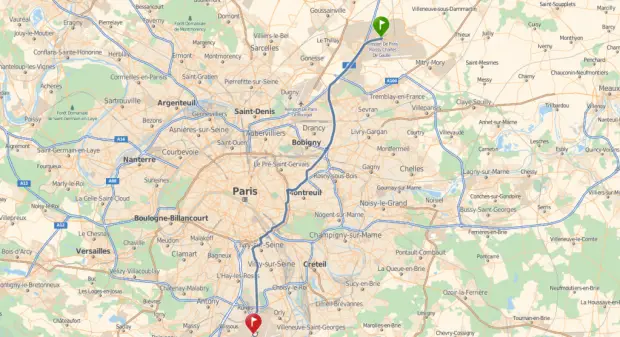France is beautiful but unique! A few key tips can make your trip much easier. Learn these essentials to avoid awkward moments and enjoy a smoother, more authentic experience.
1. Basic French Phrases Are Essential
Many French people speak English, but using a few basic phrases can transform your experience.
Start every interaction with “Bonjour” (hello) and say “Merci” (thank you) when someone helps you.
A simple “Excusez-moi” can catch someone’s attention politely.
It shows respect for the culture and helps you blend in as a considerate visitor.
Even if your pronunciation isn’t perfect, making an effort is greatly appreciated and often met with warmth.
2. The “Bonjour” Ritual Is Sacred

Saying “Bonjour” is a must when entering shops, restaurants, or even small interactions like asking for directions.
Failing to do so is seen as dismissive and may result in cold responses.
For example, if you walk into a boutique without greeting the shopkeeper, they might ignore you.
It’s a small step, but it ensures you’re treated kindly and respectfully during your stay.
3. Mealtimes Are More Structured
In France, lunch is from 12:00–2:00 p.m., and dinner usually begins around 7:30–8:00 p.m.
Many restaurants close their kitchens outside these hours, so it’s essential to time your meals carefully.
If you’re caught between meals, opt for cafés, boulangeries or brasseries offering snacks or light dishes.
Planning ahead ensures you don’t miss out on France’s incredible cuisine during your trip.
4. Museums Are Often Closed on Mondays or Tuesdays
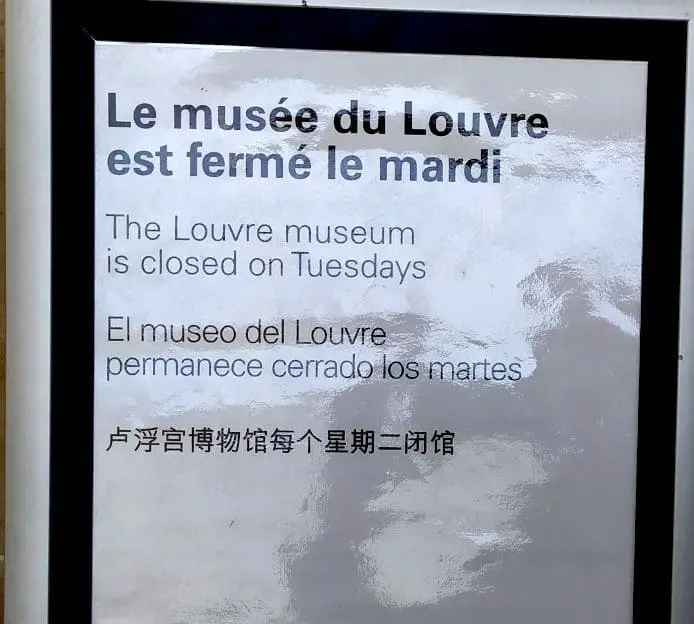
Unlike in some countries, many museums, including the Louvre, are closed one day a week, often Monday or Tuesday.
Always check their schedules before planning your visit.
Additionally, book tickets for popular spots like Versailles or the Musée d’Orsay in advance, especially during peak seasons, to avoid disappointment or long lines.
5. Public Transportation Strikes (“Grèves”) Are Common
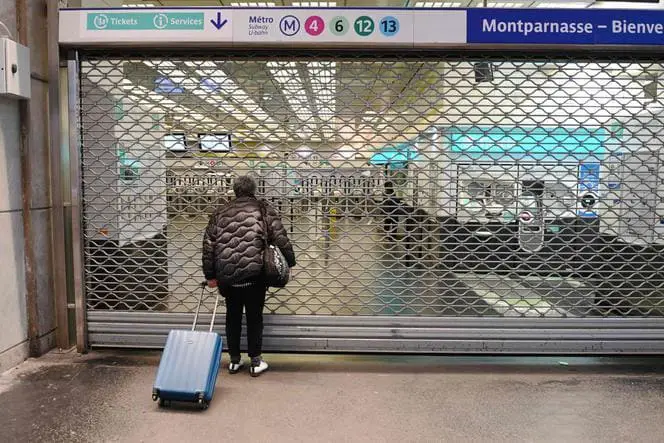
Transportation strikes, known as “grèves,” are a regular part of life in France and can disrupt metro, train, and bus services without much notice.
While they are often announced in advance, the exact details—like which lines will be running—can change last minute.
If you’re visiting Paris, always check the RATP or SNCF apps for updates.
Having a backup plan, such as walking, biking, or using ride-share services, is crucial.
For longer trips, consider booking a private shuttle or checking regional bus options.
Strikes can feel inconvenient, but they’re a reflection of France’s strong protest culture and commitment to workers’ rights.
Planning ahead ensures you can navigate smoothly, even during disruptions.
6. There’s a “Silence Law” in Apartment Buildings
In France, excessive noise in apartment buildings is prohibited by law between 10 p.m. and 7 a.m.
This applies to loud music, TV, or even noisy conversations on balconies.
Neighbors take this rule seriously and won’t hesitate to knock on your door or report you if you’re too loud.
It’s a good idea to keep the volume down and use headphones during these hours.
If you’re staying in an Airbnb or rental, remember to respect the local peace and quiet.
7. Tipping Culture Is Different
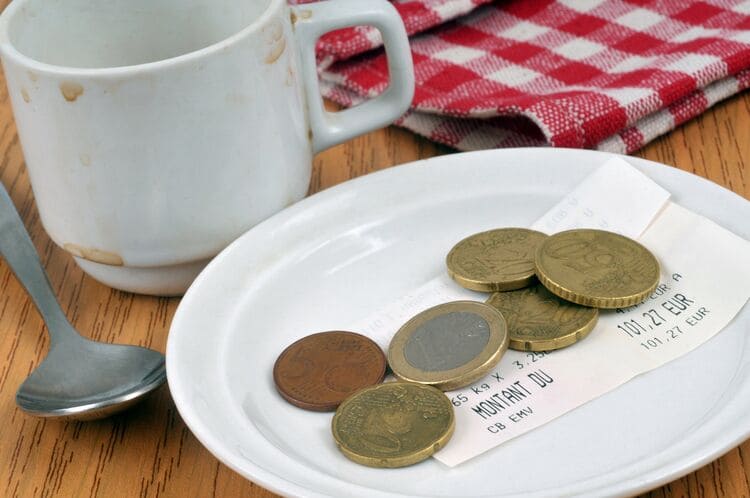
Service charges are included in restaurant bills (look for “service compris”), so tipping is not mandatory.
However, leaving a small additional tip—5–10%—is a kind gesture for exceptional service.
For example, rounding up the bill by a euro or two is common.
8. Many Shops Close on Sundays
In smaller towns and even parts of Paris, Sunday is a day of rest, and most shops, including supermarkets, are closed.
Plan your shopping for weekdays or Saturday mornings.
Some bakeries or convenience stores may open briefly in the morning, but don’t count on it.
9. Restaurant Service May Seem “Slow”
In France, dining is an experience, not just a meal.
Waiters don’t rush you, and your check won’t arrive until you specifically ask for it (“L’addition, s’il vous plaît”).
This relaxed pace lets you savor the meal, the wine, and the conversation.
Embrace it—it’s part of French culture!
10. Pharmacies Are Highly Trusted
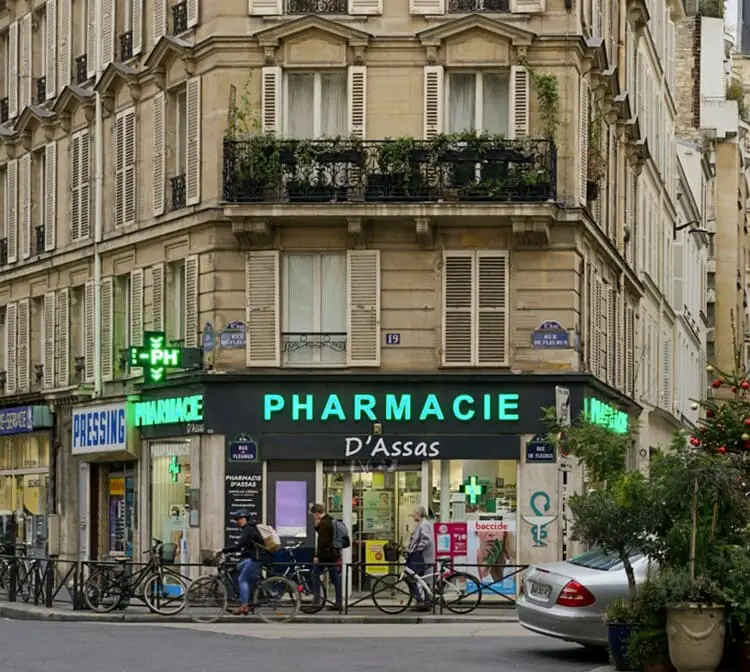
French pharmacies (marked with green crosses) are more than just places to buy medicine.
Pharmacists can give advice on minor ailments, recommend treatments, and even provide over-the-counter medication.
If you’re feeling unwell, skip the hospital for non-emergencies and visit a pharmacy—they’re highly knowledgeable and helpful.
11. The Electrical Voltage Is Different
France uses 220V electricity with Type C/E plugs.
If your devices are designed for 110V, bring a voltage converter, not just a plug adapter.
Forgetting these can result in damaged electronics or devices that simply won’t work.
12. Water and Bread Are Free in Restaurants
Tap water (“une carafe d’eau”) and bread are included with meals at no charge.
If you prefer bottled water, specify “eau gazeuse” (sparkling) or “eau plate” (still), but be prepared to pay for it.
Bread will usually be refilled automatically if you finish it.
13. Restaurant Bread Is for Eating With Food
In French dining, bread isn’t a standalone appetizer but an accompaniment to your meal.
It’s commonly used to enjoy sauces, cheese, or food on your plate.
Spreading butter on bread as a pre-meal snack is uncommon and may get you puzzled looks.
Bread is typically served without butter unless requested, so enjoy it the French way—pair it with your food or use it to savor every last bite of your dish’s sauce.
14. Coffee Culture Has Specific Rules
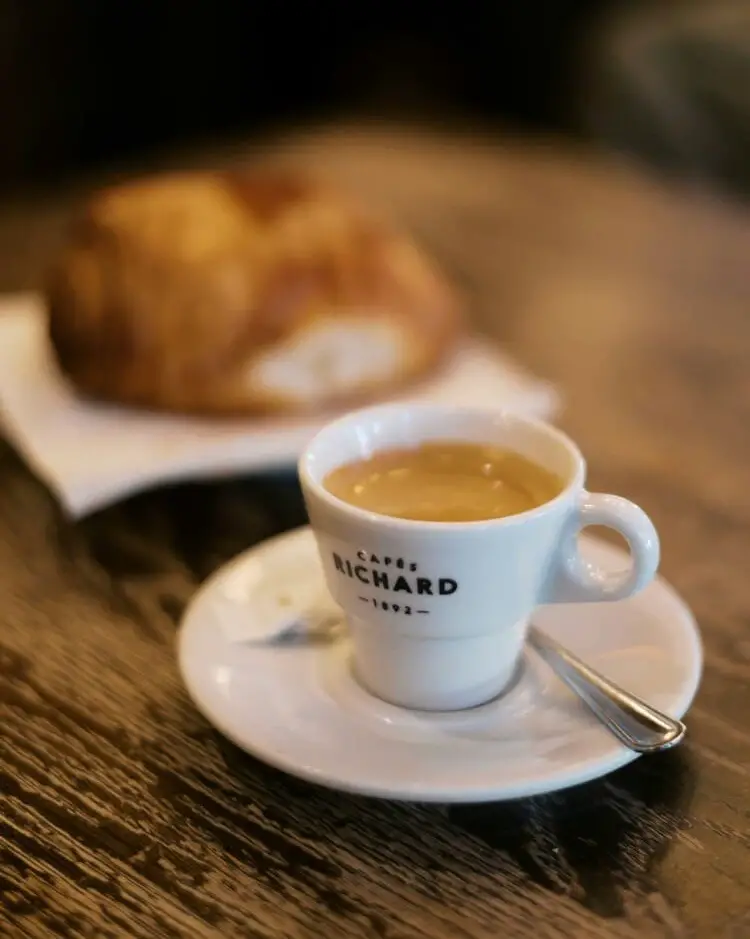
Coffee in France comes with its own traditions, and knowing them can enhance your experience.
A “café” will get you a strong espresso, which locals often sip quickly at the bar.
If you want milk, order a “café crème” in the morning—but avoid it after lunch, as it’s considered a breakfast drink.
American-style coffee is rare; ask for a “café allongé” for something closer.
In cafés, it’s normal to linger, but don’t expect free refills.
If you’re sitting at a table, prices may be slightly higher than at the bar.
15. Personal Space and Volume Levels Are Different
French people value personal space and generally speak more quietly in public.
Avoid standing too close to strangers or speaking loudly, especially on public transport.
It helps you blend in and avoids drawing unwanted attention.
16. The French Take Their Holidays Seriously
In August, many locals go on vacation, and businesses may close for several weeks. This includes restaurants, shops, and even some small museums, especially outside major cities.
While Paris remains lively, some local spots may still shut down.
Always check opening hours in advance if you’re visiting during this time.
Additionally, public offices and smaller services might operate on reduced hours throughout the summer.
17. Customer Service Has a Different Philosophy
In France, customer service is more formal and less focused on “the customer is always right”.
Staff in shops and restaurants may not go out of their way to accommodate every request, but this doesn’t mean they’re unfriendly—it’s simply a cultural difference.
Patience and politeness go a long way.
18. Dress Code Is Generally More Formal
Casual wear like flip-flops, athletic clothes, or overly relaxed outfits aren’t common, especially in cities.
For example, wearing sneakers to a nice restaurant may feel out of place.
Dress stylishly but comfortably to fit in.
Related read: 9 Tips to Dress Like a Parisian Woman
19. Wine Etiquette Matters
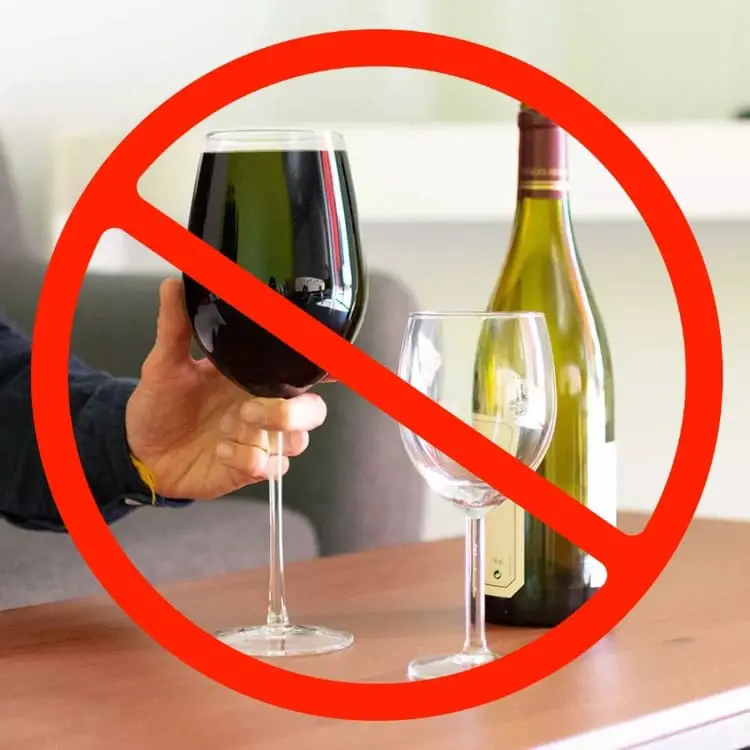
Don’t fill your wine glass to the brim—fill it halfway instead.
Wait for everyone to be served before drinking and toast with “Santé” (cheers) while making eye contact.
These small gestures are appreciated and show you understand French dining customs.
20. Many Apartment Buildings Are Old
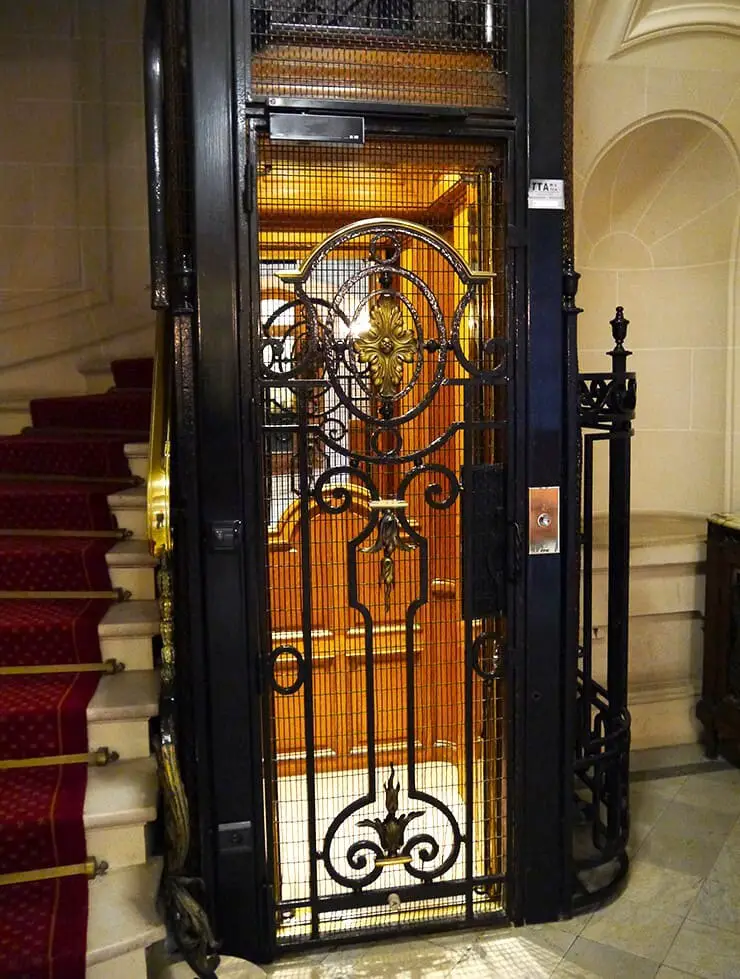
France’s charming old apartment buildings often come with surprises.
In cities like Paris, buildings may lack elevators, or they might be tiny and slow.
Apartments can be smaller than you’re used to, with quirky layouts or unusual plumbing.
Staircases might be narrow and winding, and air conditioning is rarely installed.
While these features add to the historic charm, they may require some adjustment.
If you’re staying in an Airbnb or rental, double-check amenities beforehand and pack light—it’s easier to navigate those charming, but tight, staircases.
21. The Artistic Heritage Is Protected
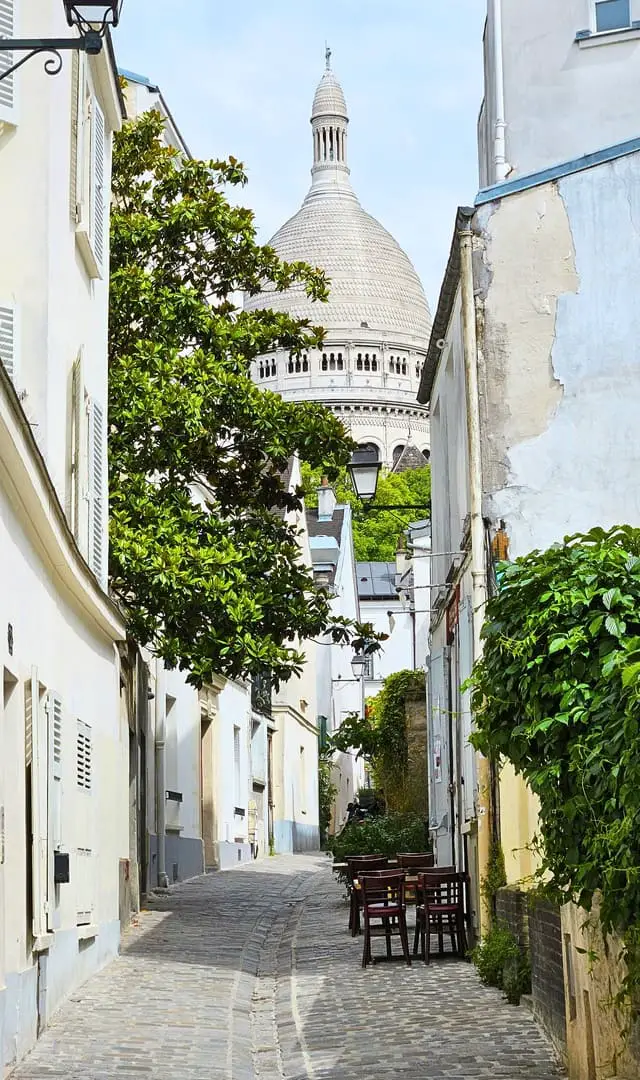
France takes immense pride in preserving its artistic and historical heritage. Many buildings, streets, and neighborhoods are protected under strict preservation laws.
This means you’ll find charming cobblestone streets, centuries-old facades, and neighborhoods where time seems to have stopped.
However, modern conveniences like large windows, air conditioning, or elevators are often restricted to maintain the historic look.
Even renovations must adhere to these rules.
While this creates a magical atmosphere, it can come with practical inconveniences—so embrace the charm and the quirks of stepping into living history.
22. Air Conditioning Isn’t Universal
Air conditioning isn’t common in French homes, hotels, or restaurants.
Even when available, it’s often used sparingly.
If you’re visiting in summer, dress in light, breathable clothing and prepare for warmer indoor temperatures.

With a passion for travel and having visited over 50 countries, Dorian is eager to share his favorite spots and expert tips to help you explore Paris and France like a local.

